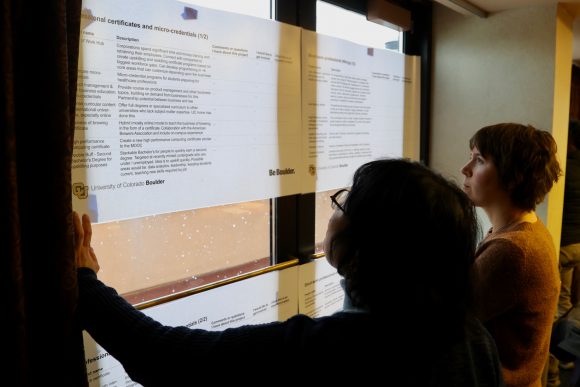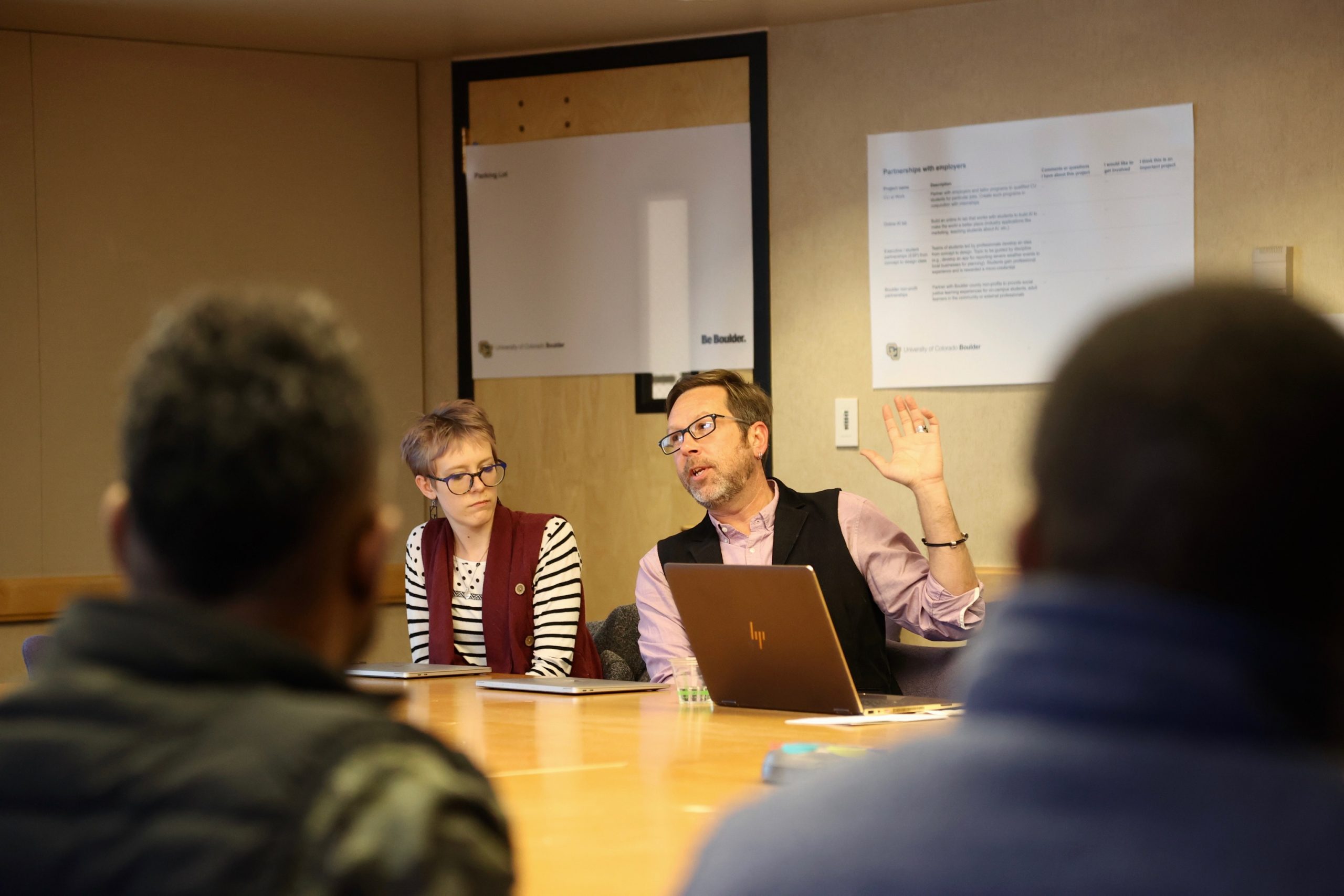
Participants of CU’s Financial Futures initiative read over proposed solutions in UMC room 425. Feb. 19, 2020. (Nigel Amstock/CU Independent)
Financial Futures, a University of Colorado Boulder strategic plan to better align resources on campus, has entered its second phase, known as “Strategic Financial Alignment.” The plan, which began in August 2018, has looked to improve the transfer student experience, refine construction project processes and remove barriers related to collaborative research, according to its website. It recently negotiated the Adobe Suite contract to a fixed price.
On Wednesday, Quentin McAndrew, executive director of Digital Initiatives and assistant vice provost at CU Boulder, lead a roundtable discussion about the plan’s status.
“Part of this process is identifying project champions,” McAndrew said. “So, we are the solution to the question the provost has asked us: What does (the) university do around executive, extended and next-generation education?”
The meeting was largely discussion-based as attendees were encouraged to read project ideas posted along the conference room walls and discuss their favorites, as well as contribute to new ones. Financial Futures has held several of these discussions and has generated over 140 approved projects to date.

A member of the CU Boulder community speaks during a roundtable discussion on CU’s Financial Futures initiative in UMC room 425. Feb. 19, 2020 (Nigel Amstock/CU Independent)
“All of us in this room are devoted to our mission,” McAndrew said.
The group then broke off to view posters of ideas generated in last week’s focus group and split into smaller parties of alumni and administrators to discuss.
McAndrew brought the attendees back together for a group discussion to share ideas that came up during their conversations.
“I’m really interested in trying to make sure that our students are prepared for the next generation of what electrical engineering students are,” said Keith Graham, associate chair of Undergraduate Education in Electrical, Computer & Energy Engineering.
Optimistic about new program expansions, Grahm continued, “We are adding seven new courses this semester and the next two semesters. I don’t think we would actually see that without these new models”
“I am interested in creating pathways into a university and reducing barriers and increasing accessibility” added Jenny Lane, assistant program manager for the Provost Office for Academic Innovation.
“I love the idea of students not being penalized for decisions they made as a teenager,” Lane said.
She noted that pathways should include CU Boulder being understanding of mistakes that may have lowered a student’s GPA or effected them somehow in the past. Lane said now that the university has such a large non-traditional student population hoping to reenter higher education these mechanisms are necessary.
James Melancon explained his idea for a track system between education at CU and progressing through a career and said, “you’re not just here to graduate from CU, you’re part of the ecosystem for life.”
“So graduation is just the beginning,” McAndrew added. “That’s fabulous.”
Contact CU Independent Staff Writer Mairead Brogan at mairead.brogan@colorado.edu.
